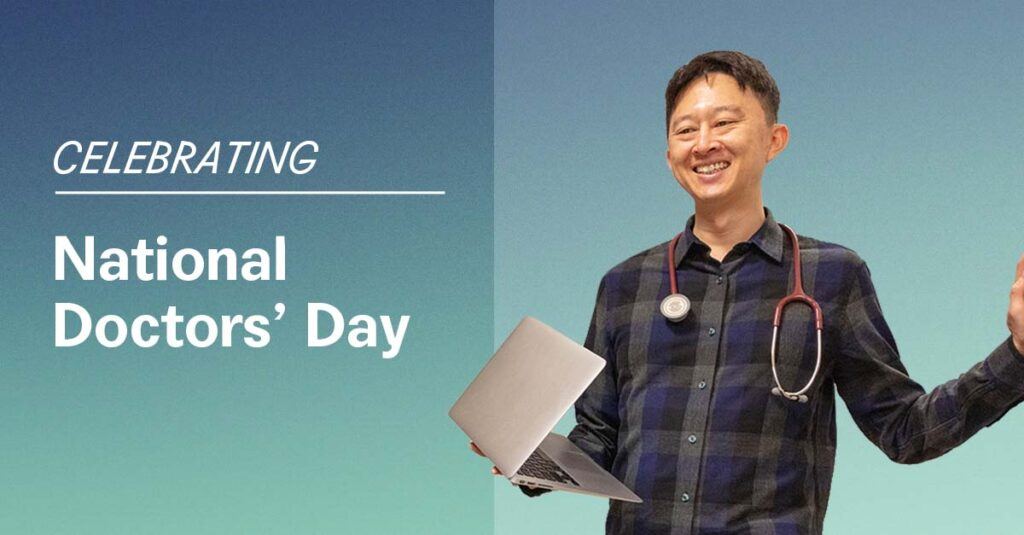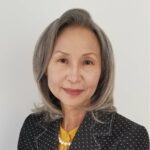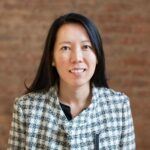
Blog
Finding Fulfillment This National Doctors’ Day
That feeling of fulfillment in helping others. It’s what inspired so many to pursue their dream of practicing medicine and can be critical to sustaining that passion throughout a career. As we celebrate the life changing work of doctors for National Doctors’ Day, we pause to reflect on the importance of personal fulfillment in medicine.
As in any line of work, it’s that sense of making a difference; of having a positive impact which is so important to sustaining a career, especially through difficult times. Everyone rises with the tide when physicians are able to practice medicine in a way that gives them the time, team and trust they need to make a difference in patients’ lives.
At Crossover Health, we’ve built a culture of care that at its foundation enables each and everyone one of our providers to practice care the way they always envisioned they would. They are able to take the time they need to build trusted relationships with members; to work as part of a comprehensive care team and focus on outcomes. Success is measured by achieving health goals with members, never on visit volume. And not only does this approach sound good – but it’s working. In the midst of the “Great Resignation” from medicine, when too many physicians are experiencing burnout and being compelled to leave the profession, we were able to experience a physician retention rate of 94%.
We’re confident that we’re onto something here. So today, on National Doctors’ Day, we’re amplifying the thoughts of our front line providers and medical group leaders from across the country as they share what excites them about being empowered to practice medicine the way they always intended to.
Our thanks to David McBride, MD, Regional Medical Director; Tina T. Lee, MD, Medical Director; Steven Chang, MD, Primary Care Program Director; and Danna Chung, MD, Virtual Medical Director.
Happy National Doctors’ Day to all!
Q: Tell us how your career at Crossover enables you to practice medicine the way you envisioned you would when you were training, and how are you empowered to do that?
David McBride, MD: My work today, thankfully, affords me with very valuable assets that have been lost in much of medical care recently. The assets of time, connection and collaboration. I’m privileged to work for a medical group that has smaller patient panels and encourages me to spend at least 30 minutes with each member during a visit, making vital connections with them. At the same time, I benefit – and each member benefits – from the ability to collaborate as needed and practice as part of a multidisciplinary care team. It is so valuable to be able to care for our members in this holistic way, as a team, with other clinicians who bring their specialty training to view the member in a slightly different and complementary way, resulting in the best care planning and outcomes.
Our team often practices this way with members who have diabetes, for example. At the onsite health center where I practice, I can easily refer a member with diabetes to an onsite eye exam, as eye health is critical for those with diabetes. Simultaneously, I know that our health coaches and nurses will be working with the members to expedite needed medical and nutritional life changes to improve their disease state. Having confidence in our team and the seamless warm handoffs make my job more rewarding as we’re all able to share in the satisfaction of helping our members’ health thrive.

Tina T. Lee, MD: Here at Crossover, I can confidently say that I am able to practice medicine the way I envisioned I would – and even more so, in terms of providing alternative modes of communication and care beyond the traditional in-person care model. I’m thankfully supported with the tech and data infrastructure I need to stay connected to my patients and be proactive in addressing their needs – whether in person or online – we meet them where they are. My patients can connect with me for care via secure messaging and I can see them virtually – in addition to in-person visits – whichever is convenient and comfortable for them. It’s fulfilling to collaborate with other team members and share information to provide truly integrated holistic care. Practicing in a culture that prioritizes patient experience, prevention, well-being and outcomes, aligns very strongly with my own values and allows me to fully be there for my patients in their time of need.
Q: Why is your fulfillment as a physician important to patient outcomes? Do you think a medical group’s culture and systems (payment, referrals, access to data, etc.) contribute to physician fulfillment or burnout?

Danna Chung, MD: Systems and culture drive care quality. They can help enhance or hinder our work as physicians. A medical group’s work culture is essential to setting the tone for success in quality care delivery and better outcomes. When physicians are empowered to deliver more complete and compassionate care – when they can see the difference they’re making – they’re often more fulfilled.
Our team, in particular, has been fortunate to have a hybrid model of care that combines our national virtual practice with our growing presence of onsite and near site health centers from coast to coast. We’ve added new technology during the pandemic to best support care needs. I’m extremely grateful for our incredibly flexible team who have remained committed to delivering compassionate care throughout this evolution. This process has made me even more dedicated to ensuring our providers feel supported and empowered in care delivery and in best supporting our members’ health needs.

Steven Chang, MD: Collaboration and connection facilitates patient outcomes, and it is fulfilling as a physician when these are prioritized. When I was training, I experienced a frantic pace of 15-minute visits and double booked schedules; that’s a burden on physicians, and patients feel it. Thankfully, that culture is far from my current reality. Today, I am empowered to spend time with our members and encouraged to form deep, trusted relationships with them. This is a much more empathetic culture and it allows me to think more holistically about long-term member health and see outcomes improve. Changing healthcare starts with changing how we view the primary care visit. I am very grateful for this added time with members, as I know it is not like this elsewhere.
In addition to having the appropriate time to devote to patients, one of the most unique aspects of practicing medicine at Crossover is the opportunity to engage with colleagues from other clinical disciplines on a regular basis. Our teams are always learning from each other. I’m able to directly collaborate with health coaches, mental health providers and physical medicine providers to set our members on their best care journey. Members also greatly benefit from this team approach. They see the value of having a united provider team – all under one roof – working together for them. It is immensely satisfying to work in a culture where the incentives are aligned to keep members and providers excited about good health, and where providers are solely motivated by positive outcomes, not fees and payments.
Q: What does being fulfilled as a physician mean to you today?
Danna Chung, MD: On one level, being fulfilled is the ability to consistently provide comprehensive compassionate care to members. This is what I set out to do when I decided to become a physician and it has been very fulfilling to be able to accomplish this depth of relationship virtually. On another level, through my role as a manager of providers, it has been hugely satisfying to help establish a platform and support a practice that allows my fellow care team providers to attain that same goal. We celebrate every positive patient feedback that we receive as a team, because we all strongly believe in this model of care that we are developing.
Tina T. Lee, MD: Being fulfilled in my practice means being able to connect with members long-term to help create a positive effect on their day-to-day health and wellbeing. It’s empowering to help them attain their goals in life for family, community and work. At Crossover, I’m able to make this journey with members, share their milestones and help with low points – as well as celebrate the health victories. It means being able to enjoy the rapport of teaming with clinicians and staff to work together on behalf of the member. This joy in working together to help others stay well is why so many of us decided to become physicians.